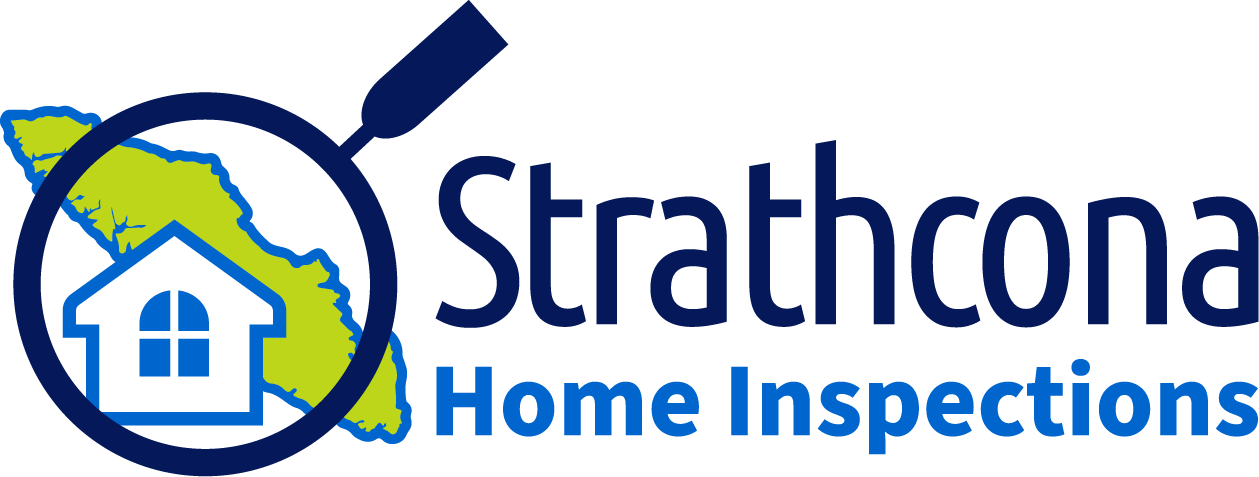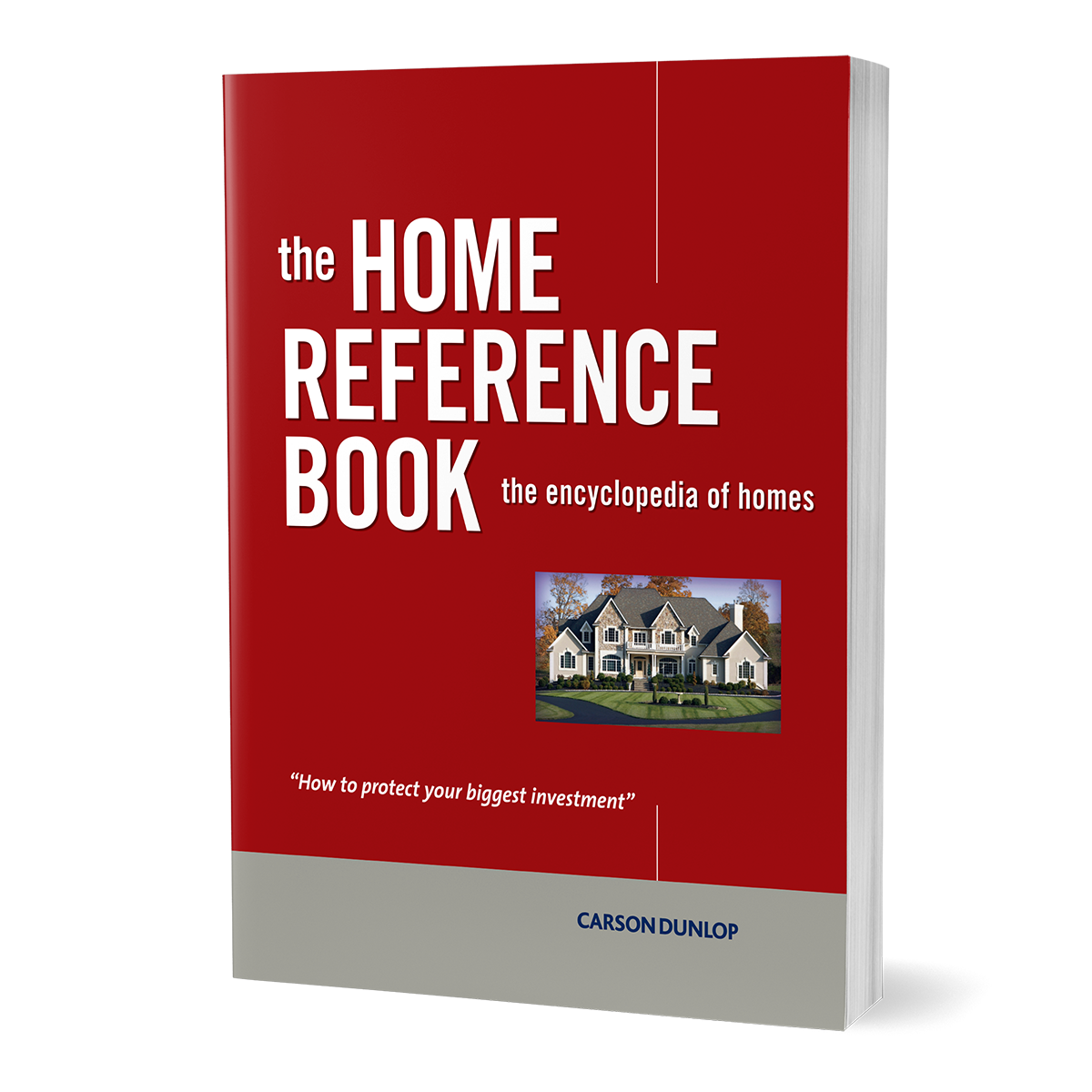-
FAQs
At Strathcona Home Inspections we do our best to answer all of your questions. Below you will find a list of what we believe are the most frequently asked questions. If you have any questions that have not been answered below, do not hesistate to contact us.
-
A typical inspection should take 3 to 4 hours to complete. This can vary, given the current condition and size of the home, the accessibility of mechanical systems, and so on. As a courtesy to sellers, we recommend that they be informed of the timeframe in a pre-purchase home inspection situation.
We inspect the major systems of the house. These include the Roof, Exterior, Structure, Electrical, Heating, Cooling, Plumbing, Insulation, and Interior. Our goal is to identify any existing major problems that would affect a typical buyer's decision to purchase.
Our typical average fee for an inspection is $500. However, some factors will affect the fee. If you are comparing home inspection firms, the fee charged should not be the deciding factor unless the level of service offered is identical. Remember, you are considering a major purchase and your choice of home inspector should be based on getting the best value, not just the best price.
- Complete home inspection conducted by an experienced professional.
- Comprehensive written home inspection report.
- Technical support for as long as you own your home.
- Insurance Summary to provide to your insurance broker designed to assist you in obtaining coverage for your most valuable purchase.
Although this would seem like a great idea, it is in your best interest to let your home inspector focus on the job at hand, which is inspecting your future home. Your inspector will perform the most comprehensive inspection if he is able to focus on the home and its components. We do however encourage you to attend the home at the end of the inspection. At this time your inspector will review his findings with you and point out any areas of particular concern that he may have found, giving you the ability to ask questions and see what it is that he saw first hand. The inspection is a valuable learning experience for most homebuyers.
You don't have to take notes during the inspection. We will document everything in a written report. It's much better to review the findings with the inspector at the end of the inspection to make sure you understand. It's also a great opportunity to ask questions and to clarify anything that confuses you.
Absolutely! You may want to bring some questions that you have regarding the home. You should also feel free to stop the inspector and ask questions as you go through the post inspection review process. If the inspector's comments or explanations are not clear, please ask for clarification.
We recommend that you do not bring your family; this is a technical evaluation, and you will be interacting with the inspector — the fewer distractions, the better.
You do receive a written report. It would be unfair to ask you to remember all of the things we cover during a home inspection. The report includes a summary of the condition of the home and details on all the major systems of the home. It is guaranteed to be delivered within 24 hours after the inspection, however most times it is delivered that very same day.
No. Our goal is to report on the condition of the house, indicating potential repairs and expenses. Ultimately, it is your decision as to whether or not you buy the house. The home inspection is very important but it is only one piece of the puzzle. Only you know all of the factors at play. Your real estate professional can help you here.
A home inspection is a professional opinion based on less-than-complete information. It's a little like getting a check-up from your doctor. It improves your odds of good health but there is no guarantee or warranty. Some problems can only be discovered by living in a house; they cannot be discovered during a home inspection. For example, some shower stalls leak when people use the shower but don't leak when you simply turn on the shower. Some roofs and basements only leak when specific weather conditions exist. Some problems will only be discovered when carpets are lifted, furniture is moved or finishes are removed. As such, we cannot and do not offer a complete warranty on the house.
Our inspector is a graduate of the Carson Dunlop Home Inspection Training Program. This is the leading home inspection training program in North America. Your inspector is known for their excellent communication skills and hands-on experience. Our inspector also keep his skills current with ongoing mandatory continuing education which is a requirement for licensing in the Province of BC and is also a requirement of our chosen professional association.
Our inspector is also fully qualified for performing woodstove inspections through WETT Inc. who is the industry overseer of woodstove inspections in Canada . Insurance providers require that wood burning appliance inspections be performed by a WETT certified inspector who holds a Level 1 Visual Inspection Certification.
Our inspector is licensed through Consumer Protection BC and is a member of The Home Inspectors Association of British Columbia (HIABC) which is known to have the highest educational and professional standards for their members in British Columbia.
As a consumer, retaining the services of an HIABC member to perform your home inspection assures you that you are hiring a licensed professional with proven ability, experience and impartiality, who can give you peace of mind and help you make a confident and informed buying decision.
As a real estate professional, referring your client to the HIABC office or website for the names of qualified home inspectors can reinforce your relationship with your clients. They will feel more confident with the condition of the property, and the quality of your advice.
Our Inspector is also an up to date member of WETT Inc. and is a certified level 1 Visual WETT Inspector.
Our inspector is ready to serve you quickly. However, when the sale of a home is conditional on the results of a home inspection, we recommend that you allow at least three days to arrange for your home inspection.
Homeowners should be aware that inspectors cannot move personal effects during the course of an inspection. Here are a few suggestions to prepare a home for an inspection:
Remove any furniture and stored material from around access panels, crawl spaces, attic hatches, electrical panel boxes, furnaces, hot water tanks and water shut-offs.
If the access panel to the crawl space or attic is in a closet, you might want to remove the clothes from that closet or cover the clothes with a sheet, in order to protect them from bits of insulation and debris that might fall down in the process of removing the access panel.Over friendly or unfriendly dogs or other family pets can complicate the inspection process and are best keep either away from the house or in a contained space during the period of an inspection.
The installations of wood burning appliances and fireplaces in Canada are covered by very specific codes. Due to the nature of these installations there is significant fire and safety concerns. WETT or Wood Energy Technology Transfer Inc. is an Association of installers, chimney sweeps, and inspectors who have been educated, trained and certified to install and inspect such installations to ensure they meet the applicable requirements. Here are some instances where a WETT inspection may be required:
- a new installation of a wood burning appliance or fireplace either in new construction or retrofit into an existing building.
- on sale or transfer of property.
- renovations around an existing wood burning installation which could change the performance or clearances.
- older installations or concern of homeowners or tenants about safety and performance of an installation.
- It’s becoming more frequent that a WETT inspection is necessary when obtaining fire insurance on a building containing a wood burning installation. This is a requirement of the insurance company and must be carried out by a certified WETT inspector. It is wise to have this inspection done as a condition of sale when purchasing a building as repair or replacement of a non-conforming installation can involve significant cost.
- Our inspector is a fully qualified Certified Level 1 Visual WETT Inspector and can provide you with the required inspection report to ensure safe operation of your wood burning appliance and meet the requirements of insurance companies who provide you home insurance coverage.
-
Priority Maintenance for Home Buyers
There are so many home maintenance and repair items that are important; it can be confusing trying to establish which are the most critical. To simplify things, we have compiled a short list of our favorites. These are by no means all-inclusive, nor do they replace any of the information in a home inspection report. They should, however, help you get started on the right foot. Remember, any items marked as priority or safety issues on your home inspection report need immediate attention.
One-Time Tasks
- Install smoke detectors and carbon monoxide detectors as required, according to manufacturer’s recommendations. Know the requirements in your area.
- Make any electrical improvements recommended in the home inspection report.
- Remove any wood/soil contact to prevent rot and insect damage.
- Change the locks on all doors. Use a dead bolt for better security and to minimize insurance costs.
- Correct trip hazards such as broken or uneven walks and driveways, loose or torn carpet or uneven flooring.
- Correct unsafe stairways and landings. (Railings missing, loose, too low, et cetera.)
- Have all chimneys inspected before operating any of these appliances.
- Locate and mark the shut-offs for the heating, electrical and plumbing systems.
- Label the circuits in electrical panels.
- If there is a septic system, have the tank pumped and inspected. If the house is on a private water supply (well), set up a regular testing procedure for checking water quality.
Regular Maintenance Items
- Clean the gutters in the spring and fall.
- Check for damaged roofing and flashing materials twice a year.
- Cut back trees and shrubs from the house walls, roof and air conditioning system as needed.
- Clean the tracks on horizontal sliding windows annually, and ensure the drain holes are clear.
- Test ground fault circuit interrupters, carbon monoxide detectors and smoke detectors using the test button, monthly.
- Service furnace or boiler yearly.
- Check furnace filters, humidifiers and electronic air cleaners monthly.
- Check the bathtub and shower caulking monthly and improve promptly as needed.
- If you are in a climate where freezing occurs, shut off outdoor water faucets in the fall.
- Check reversing mechanism on garage door opener monthly.
- Check attics for evidence of leaks and condensation and make sure vents are not obstructed, at least twice a year. (Provide access into all attics and crawl spaces.)
Line drawings are from the Carson Dunlop Home Inspection Training Program and Home Inspection Software Tool – Horizon
Serving the Comox Valley, Campbell River, Northern Vancouver Island and surrounding areas


